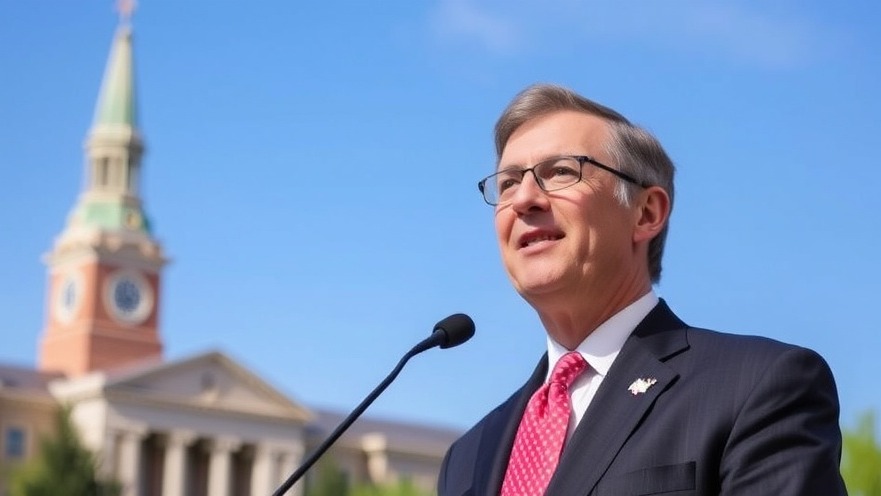
UT System's Groundbreaking Leadership Change
A significant shift is underway within the University of Texas (UT) System as Chancellor JB Milliken prepares to leave his role to lead the University of California (UC) after nearly seven years of transformative leadership. This change comes as state leaders and education advocates analyze the future trajectory of one of the largest university systems in the United States.
The Impact of JB Milliken's Leadership
Chancellor Milliken’s tenure has been marked by progressive initiatives and a commitment to education equity across the 256,000-student UT System. Under his guidance, the system launched numerous programs aimed at improving access to education and supporting underserved populations. His leadership was acknowledged by UT System Regents' Chair Kevin P. Eltife, who emphasized the “close and very productive relationship” achieved during Milliken's time at the helm, embodying a forward-thinking approach that sought to expand educational opportunities.
John Zerwas: The Interim Leader Stepping In
Taking the reins as acting chancellor will be John Zerwas, a former Texas state representative and the UT System’s executive vice chancellor for health affairs. Known for his extensive experience in public service and healthcare, Zerwas is expected to navigate the transition smoothly while upholding the educational standards set by Milliken. His background in both governance and health affairs suggests a priority on integrating well-being and academic success within the university framework.
Future Predictions: What Lies Ahead for UT System?
As the UT System prepares for this significant leadership transition, many stakeholders wonder how these changes might affect current and prospective students. With a dynamic incoming UC leadership, there is speculation about potential shifts in collaboration between Texas and California universities. Notably, will this leadership change inspire new partnerships or competitive dynamics in higher education? Observers suggest that with continuing discussions around tuition, funding, and educational policies, the forthcoming landscape is ripe for innovation.
Valuing the Texas Higher Education Scene
Education in Texas is at a pivotal moment. With recent changes in leadership both within the UT System and across the nation, it’s important to consider the implications for Texas universities. As policies affecting higher education evolve, students and families will need to stay informed about how these decisions impact their education and financial well-being.
Local Repercussions: How This Affects Texas Communities
The news reverberates throughout Texas, particularly in key cities such as Austin, Dallas, and Houston, which are home to major university campuses. The leadership change could influence local economies tied to the university systems—through job creation, student enrollment, and educational innovations impacting workforce development. Texas news headlines are likely to cover these unfolding developments closely, particularly as more citizens become engaged in the conversations surrounding education in the state.
In Conclusion: A Call for Engagement and Support
This leadership change presents an opportunity for Texas residents to engage more deeply with local higher education issues. As concerns about the value of accessible quality education continue to grow, we must support initiatives that prioritize educational equity across the state. Consider joining local discussions or, if able, advocating for policies that sustain and enhance the educational landscape in Texas.
 Add Element
Add Element  Add Row
Add Row 



Write A Comment